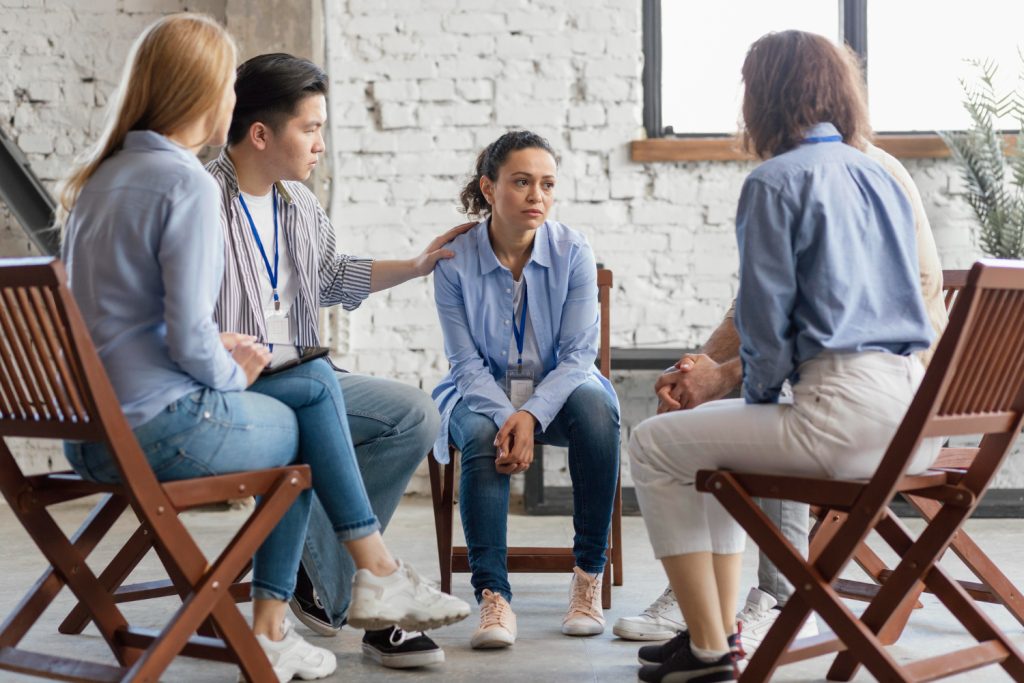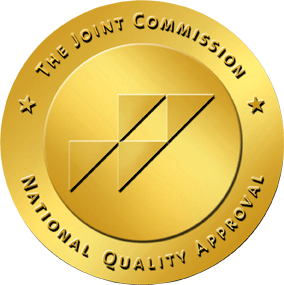Living with anxiety or depression can feel overwhelming, isolating, and exhausting. But individuals don’t have to manage these challenges alone. Group therapy has emerged as one of the most effective forms of treatment for people experiencing anxiety and depression. It creates a supportive, judgment-free environment where participants can share their struggles, learn from others, and gain coping tools guided by licensed mental health professionals.
At Improving Lives Now, group therapy is offered as part of our Intensive Outpatient Program in Miami and other treatment options. We believe in the power of connection and community in the healing process. Group therapy helps individuals feel heard, understood, and empowered, especially when navigating the complexities of anxiety and depression.
Understanding Group Therapy for Anxiety and Depression
To better appreciate the value of group therapy, it’s important to understand what it involves and how it works in clinical settings. Group therapy typically brings together six to twelve individuals who share common struggles, such as anxiety or depression. Sessions are led by a trained therapist who facilitates discussions, guides therapeutic activities, and ensures a safe and respectful space.
This model allows participants to realize they are not alone in their experiences. By hearing others’ stories and offering support, group members often develop stronger coping skills, emotional resilience, and interpersonal awareness. Many individuals also find it easier to open up in group settings once trust is built, especially when they realize others share similar thoughts and challenges.
Core Benefits of Group Therapy for Anxiety and Depression
Many individuals who participate in group therapy report meaningful progress in their mental health. The benefits of group therapy for anxiety and depression are not just emotional—they are backed by evidence and clinical research.
Shared Experiences Reduce Isolation
One of the most powerful aspects of group therapy is the shared experience. Living with anxiety or depression can create feelings of isolation, shame, or fear of judgment. Being in a group where others openly discuss similar struggles helps normalize these feelings. This sense of shared understanding often reduces loneliness and provides emotional comfort.
Emotional Support From Peers
Group therapy fosters connection and mutual encouragement. Participants learn to give and receive support, creating a sense of belonging. Group members often become motivators for one another, holding each other accountable and celebrating progress together.
Opportunity to Learn New Coping Strategies
Every group member brings unique perspectives, skills, and strategies. Group therapy allows individuals to observe how others handle difficult emotions, which may inspire new coping techniques. Therapists may also introduce structured exercises, like role-play or mindfulness practices, to help participants manage anxiety and depression more effectively.
Builds Social and Communication Skills
Anxiety—especially social anxiety—can affect communication and confidence. Group therapy offers a safe environment to practice expressing thoughts, setting boundaries, and listening actively. These interpersonal skills are crucial for navigating relationships outside of therapy.
Accountability and Motivation
Consistently showing up for a group becomes part of a healing routine. Knowing others expect participation provides motivation and helps with commitment. Celebrating small wins together also reinforces progress and helps individuals stay focused on recovery.
Common Group Therapy Activities for Anxiety
Group therapy sessions often include specific activities designed to help participants work through anxious thoughts and emotions. These exercises can vary depending on the therapeutic approach, but are always facilitated with intention and care.
Progressive Muscle Relaxation and Breathing Techniques
These exercises help individuals identify tension in the body and teach them how to release it. Breathing deeply and relaxing muscle groups improve self-regulation during anxiety-inducing situations.
Mindfulness Practices
Mindfulness-based activities encourage presence and reduce rumination. These may include body scans, guided imagery, and mindful observation tasks. Practicing mindfulness as a group fosters emotional regulation and calmness.
Cognitive Behavioral Techniques
CBT-based activities often involve identifying cognitive distortions and practicing thought reframing. Participants may discuss triggers and use real-life examples to change harmful thought patterns.
Role-Playing Scenarios
For individuals with social anxiety, role-playing provides an opportunity to practice responses in a non-threatening setting. These exercises help participants build confidence and reduce avoidance behaviors.
Group Therapy Within an Intensive Outpatient Program (IOP)
For individuals needing a structured yet flexible form of care, group therapy is a core part of Improving Lives Now’s Intensive Outpatient Program (IOP). This program is ideal for those who require more than weekly therapy sessions but do not need full-time hospitalization.
IOP participants attend therapy several times a week, often participating in group therapy sessions alongside individual psychotherapy. The structure helps reinforce progress and allows for consistent peer support. Our IOP also includes access to professional life coaching, substance abuse counseling, and anxiety and depression support, creating a comprehensive path to healing.
Group therapy within an IOP is especially valuable for those transitioning from a Partial Hospitalization Program (PHP) or looking for extra support while balancing work, school, or family responsibilities.
When Is Group Therapy the Right Choice?
Group therapy is not a one-size-fits-all solution, but it can be a deeply effective and healing experience for many.
It may be the right choice for individuals who:
- Feel isolated or disconnected from others
- Experience social anxiety and want to improve interpersonal skills
- Have difficulty maintaining motivation in traditional individual therapy
- Are you looking for community-based support while receiving professional care
Group therapy may be complemented or replaced by individual therapy or PHP, depending on the severity of symptoms and treatment goals. At Improving Lives Now, clinicians provide personalized evaluations to recommend the most effective level of care.

Improving Lives Now’s Teletherapy Services
For many people, attending in-person therapy is not always feasible due to transportation challenges, mobility issues, or busy schedules. That’s why Improving Lives Now offers teletherapy services for both individual and group sessions.
Virtual mental health counseling provides the same level of professionalism, structure, and support as in-person care. Group therapy via telehealth allows participants to connect, learn, and grow from home, eliminating geographic or physical barriers.
This convenient option is especially helpful for individuals participating in our IOP or PHP programs, providing continuity of care even when life circumstances change.
Take the First Step Toward Healing
Healing from anxiety and depression does not have to happen alone. At Improving Lives Now, group therapy is more than just a treatment method—it is a community of care. Our programs are designed to support emotional growth, foster resilience, and equip individuals with the tools needed to thrive.
We offer flexible options to meet your unique needs, whether you’re interested in our IOP, PHP, or teletherapy services. Our team of compassionate mental health professionals will guide you through each step with respect, empathy, and clinical expertise.
To explore how group therapy can support your healing journey, call us today at (305) 280-1440 or visit our contact page to book an appointment. Relief, connection, and growth are closer than you think.
Frequently Asked Questions
- What types of anxiety can group therapy help with?
Group therapy is effective for generalized anxiety, social anxiety, panic disorder, and anxiety related to depression or trauma. - How many people are typically in a group therapy session?
Most sessions include 6 to 12 participants, which allows for connection and personalized attention. - Is group therapy more effective than individual therapy?
Group therapy is often equally effective, especially when integrated with individual therapy or IOP support. - Can I join group therapy remotely?
Yes. Improving Lives Now offers secure teletherapy options, including group therapy, for those who prefer remote access. - What’s the difference between IOP and PHP?
An IOP provides structured therapy several days a week with flexibility, while PHP involves more intensive daily care for those with severe symptoms.



